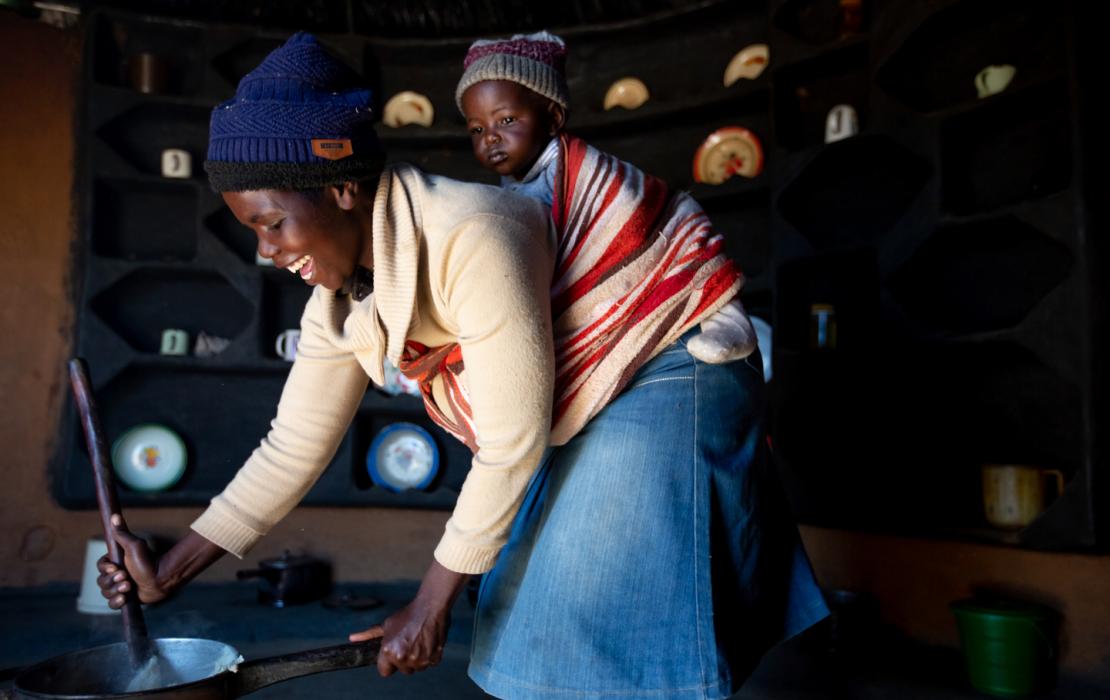La santé humaine est profondément liée au climat de notre planète et à l’état de la biosphère. Plus les crises climatiques et les catastrophes naturelles lourdes de répercussions sévissent, plus la santé en pâtit.
L’utilisation de combustibles fossiles est la principale cause du changement climatique, mais elle a aussi pour conséquence de polluer l’air. Le Health Effects Institute estime que la pollution atmosphérique est responsable d’environ 8,1 millions de décès prématurés par an.
Dans le même temps, les phénomènes météorologiques extrêmes tels que les tempêtes, les inondations et les glissements de terrain, qui se multiplient et s’aggravent en raison du changement climatique, ont causé plus de deux millions de décès entre 1970 et 2021.
Les vagues de chaleur et les incendies de forêt se multiplient et s’aggravent également. Et en compromettant la sécurité alimentaire et l’accès à l’eau potable, les sécheresses, les inondations et les changements de saison empirent la malnutrition et propagent les maladies infectieuses.
Étant donné que les écosystèmes sont remodelés par la déforestation, l’urbanisation et l’augmentation des températures mondiales, les animaux et les humains sont contraints à une plus grande promiscuité, qui accroît le risque pandémique et ouvre la voie à une ère de nouvelles épidémies et maladies aggravées.
Le changement climatique exerce également un effet sur la santé mentale. L’exposition à ses répercussions directes peut entraîner des traumatismes, de la détresse et même des troubles mentaux, tout en contribuant à l’anxiété climatique et au stress écologique à plus long terme, en particulier chez les jeunes.
En outre, les causes et les conséquences du changement climatique perpétuent ou aggravent les cycles d’inégalité, creusant les disparités sanitaires et sociales au sein des pays et entre eux. Les pays à revenu faible ou intermédiaire et les communautés marginalisées, qui sont les plus vulnérables face aux effets du changement climatique, sont les plus touchés par ses conséquences sur la santé.
Tous ces changements interviennent alors que la capacité du secteur de la santé à dispenser des soins de qualité est mise à mal par les effets du changement climatique, en particulier lorsque les infrastructures sanitaires sont endommagées ou détruites, ce qui entrave l’accès aux soins.
Le travail du PNUD dans le domaine de la santé, de l’environnement et du changement climatique consiste notamment à aider les pays à intégrer les activités liées à la santé dans leurs engagements climatiques nationaux, à rendre leur secteur de la santé plus écologique et à mettre en place des services de santé intelligents, à faibles émissions et résilients au changement climatique.
Dans le cadre de ses activités d’atténuation du changement climatique, le PNUD soutient les pratiques d’achat responsables de façon à ce que les produits de santé aient le plus faible impact climatique possible. Le PNUD aide également les gouvernements à adopter des pratiques écologiquement et socialement saines pour gérer les déchets médicaux et facilite l’accès des infrastructures de santé aux énergies renouvelables. En outre, le PNUD aide les gouvernements à lutter contre la pollution de l’air grâce à des argumentaires d’investissement pour lutter contre la pollution atmosphérique, à des évaluations juridiques et à une meilleure collaboration multisectorielle. Le PNUD aide également les pays à prendre en compte la dimension sanitaire dans leurs efforts d’adaptation au changement climatique. À ce titre, il fournit notamment des conseils et des outils destinés à intégrer les questions de santé dans les politiques et les planifications nationales d’adaptation. Il renforce également l’accès aux systèmes d’alerte précoce et d’informations climatiques, encourage la résilience en faveur de la sécurité alimentaire, améliore l’accès à l’eau et renforce les systèmes de santé résilients au changement climatique.
Ressources
- Déclaration sur le climat et la santé adoptée lors de la COP28 aux Émirats arabes unis (en anglais)
- 2023 WHO reviewExamen publié par l’Organisation mondiale de la Santé (OMS), sur place qu’occupe, en 2023, la santé dans les contributions déterminées au niveau national et les stratégies à long terme au cœur de l’Accord de Paris (en anglais)
- Alliance pour une action transformatrice sur le climat et la santé






